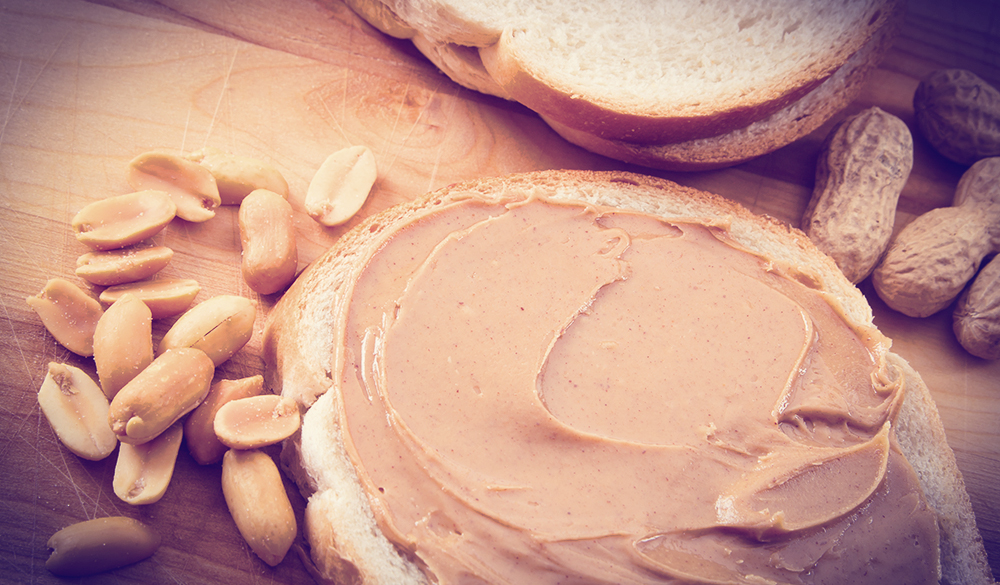Peanut allergy is one of the dominant allergic diseases experienced by children and, while some children may grow out of a milk, wheat or egg allergy, peanuts allergies tend to be lifelong burdens for most sufferers. Symptoms associated with peanut exposure in those who are allergic vary from gastrointestinal to systemic, with anaphylactic reactions posing the greatest danger.
Oral immunotherapy (OIT) has exhibited the most promise as a treatment for this life-threatening condition, increasing the likelihood of successful peanut introduction 19-fold. OIT is the feeding of small amounts of the allergen to allergic patients, and could be a way of interrupting the progression of the allergic disease and induce tolerance. Concomitant use of probiotics, which have shown immune modulating effects, are being considered for superior outcomes. However, long-term benefit of OIT is uncertain and adverse events are common.
In the original double-blinded study,[1] 62 children with a known peanut allergy were assigned to receive probiotic and peanut oral immunotherapy (PPOIT) or a placebo daily for 18 months. The children underwent a food challenge to assess for desensitisation at the completion of the trial and again 2-6 weeks afterwards to assess for sustained unresponsiveness.
The probiotic strain chosen to be included in the trial Lactobacillus rhamnosus CGMCC 1.3724 is genetically indistinguishable from Lactobacillus rhamnosus GG (LGG) and was dosed at 2 billion CFU per day. This strain was selected due to the body of evidence available in regards to its ability to regulate immunity, via induction of regulatory T cells and antigen-specific IgA.
The peanuts were given in a powder form and were titrated up to a 4000mg dose over 9-12 months and were sustained at that dose for a minimum of another 6 months. For those children who showed sustained unresponsiveness, it was advised that peanuts remained in their diet going forward.
To assess the long-term benefits of PPOIT, a follow-up study was conducted four years later.[2] All patients who completed the initial study were invited back; 48 responded (24 in each treatment arm). A questionnaire was provided to assess peanut intake over the past four years, including amount, frequency and whether any adverse events were experienced.
Further testing was conducted at the discretion of the child and his/her parents. These tests included a skin prick test, blood tests measuring peanut specific IgG4 and specific IgE and a peanut challenge.
Of those who responded, 20 PPOIT-treated participants had shown sustained unresponsiveness and 16 of those continued to ingest peanuts regularly. Only one of the children in the placebo arm had shown to be desensitised at the end of the parent study, however another child did manage to introduce peanuts over the following four years while concurrently taking an immunosuppressant medication for eczema. The remaining 23 placebo-treated participants remained peanut allergic.
Peanut sIgG4:sIgE ratios were measured and found to be significantly higher in the PPOIT-treated children than in placebo-treated participants. Following a peanut skin prick test it was shown that patients in the treatment arm produced a much smaller wheal than those in the placebo group. Both of these measures are indicative of a reduced allergic response.
The results of the parent study and the four-year follow up study were both extremely positive and give children and their parents the hope that an effective treatment to peanut allergies is near. Future studies have already been proposed to assess whether the addition of probiotics provides an added benefit to OIT, when compared to OIT alone, along with further investigations looking into affects OIT may have on the microbiome of children with food allergies.
While specific probiotic strains, such as LGG, have exhibited immunomodulating effects in other allergic presentations, it should be noted that there are currently no clinical trials conducted using probiotics as a sole treatment for peanut allergies.
References
- Tang ML, Ponsonby AL, Orsini F, et al. Administration of a probiotic with peanut oral immunotherapy: A randomized trial. J Allergy Clin Immunol 2015;135(3):737-744. [Abstract]
- Hsiao KC, Ponsonby AL, Axelrad C, et al. Long-term clinical and immunological effects of probiotic and peanut oral immunotherapy after treatment cessation: 4-year follow-up of a randomised, double-blind, placebo-controlled trial. Lancet Child Adolesc Health 2017; 1:97-105.[Abstract]
DISCLAIMER:
The information provided on FX Medicine is for educational and informational purposes only. The information provided on this site is not, nor is it intended to be, a substitute for professional advice or care. Please seek the advice of a qualified health care professional in the event something you have read here raises questions or concerns regarding your health.



